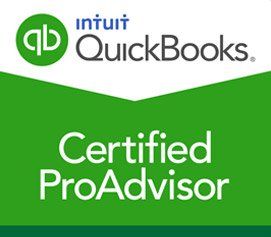Rental Property Depreciation - A Quick Guide
Depreciation is an accounting method which identifies the value of a physical asset and determines its decrease in value over time. When most real estate owners hear of it, they think that it is a bad thing. Something that holds them back from gaining success on the real estate market. However, this can’t be further from the truth. When used strategically, depreciation can be used on both commercial and rental properties to maximize the tax benefits of the owner.
To give you an idea of how this can be done, we’ve put together a guide to rental property depreciation.

Why Depreciation is Good
When most people think of ways to minimize their real estate taxes, they jump to focusing on expense deductibles. Indeed, deducting rental property expenses can be very useful. However, they pale in comparison to the savings which can be garnered by using depreciation.
If you buy a duplex worth $100,000, it will begin to break down due to wear and tear. This is especially true if your renters are not the most careful or considerate. Due to the fact that the property is aging and being used, its value will begin to fluctuate.
What does this mean for you as the property owner?
It means that you can make deductions on the perceived decrease in value of your property. What’s more, you can spread out this depreciation deduction over several years. This leads to a consistently lowered tax bill.
A good accountant will be able to walk you through the depreciation of your unique properties and know exactly how to maximize your tax savings. To connect with a Yoke Tax professional with a minimum of 20 years of experience, set up a free one hour consultation.
How Depreciation Affects Your Rental Properties
You can deduct depreciation costs from your taxes as you improve your property, which lowers your taxable income. According to the IRS, your rental property qualifies for depreciation if:
- You own the property
- You use the property to produce income
- The property has a “useful life” (it can lose value naturally, such as through wear and tear)
- The property is expected to last longer than a year
Note that land does not fall into this category, as its “useful life” is endless. Expenses such as landscaping can be deducted as regular business expenses, however.
When Depreciation Begins and Ends
You can begin to depreciate the property the moment that you put it on the market for rent. So if you purchase a house in January, spend February making repairs and upgrades, and then list it on a rental website in March, then you may start tracking depreciation in March.
In the time that the listed property is not being used by a tenant, it is considered “temporarily idle.” If you find a tenant in June, this means that the house was temporarily idle during April and May. Depreciation can still be claimed during those months.
Finally, you can stop depreciating a property when it is “retired from service.” That is, you stop using the property to generate income by either:
- Selling or exchanging the property
- Converting it to personal use
- Abandoning it
- Destroying it
Depending on whether the rental property is meant for commercial or residential use, the amount of depreciation which you can claim on your taxes is different. In addition to that, the recovery period (how long you can claim depreciation year over year) is also drastically different.
Residential Rental Properties
For residential properties, the recovery period is 27.5 years. For every full year that you keep the property in service, you must depreciate its value by 3.636%. If you have it in service for less than a year, then the IRS’s Residential Rental Property GDS table should be used to determine the depreciation rate.
To continue with our rental home example, depreciation would begin in March. For that year, you can claim 2.879%.
| Month | Rate (%) |
|---|---|
| January | 3.485 |
| February | 3.182 |
| March | 2.879 |
| April | 2.576 |
| May | 2.273 |
| June | 1.970 |
| July | 1.667 |
| August | 1.364 |
| September | 1.364 |
| October | 0.758 |
| November | 0.455 |
| December | 0.152 |
Commercial Rental Properties
The recovery period for commercial properties is 39 years. Much like with residential properties, the depreciation rate is different if it is in service for less than a year, but full years follow a consistent rate.
For commercial real estate, the yearly depreciation rate is 2.564%. If you listed a commercial rental property on the market in March, the claim you could qualify for it 2.033%.
| Month | Rate (%) |
|---|---|
| Jan | 2.461 |
| Feb | 2.247 |
| Mar | 2.033 |
| Apr | 1.819 |
| May | 1.605 |
| Jun | 1.391 |
| Jul | 1.177 |
| Aug | 0.963 |
| Sep | 0.749 |
| Oct | 0.535 |
| Nov | 0.321 |
| Dec | 0.107 |
But Wait… What About the Cons of Depreciation?
Nothing is perfect, especially when it comes to the U.S. tax code. In the case of depreciation, rental property owners have to take note of the Depreciation Recapture Tax. This tax addresses real estate’s largest edge in terms of an investment: it tends to increase in value more than it decreases.
Due to yearly depreciation deductions, you are valuing your property as less and less valuable. However, the market may see it as far more valuable. And so, in the event of selling, you may stand to profit significantly from the sale of your property. If these profits are higher than the depreciated valuing of your property, then you will be taxed as if this were ordinary income. Thus the value of the property is “recaptured.”
In short, you will be taxed over income rather than the expected (and frankly more favorable) capital gains tax. Depreciation recapture is reported on Form 4797.
Closing Thoughts on the Benefits of Depreciation
By taking note of depreciation costs, you can lower your tax bill each year and save yourself thousands of dollars. However, those same deductions can lead to difficulties with property sales and may put a dent in your profits. Generally, depreciation is a smart tool that every rental property owner should utilize, but it takes an experienced tax professional to maximize its benefits without stumbling into long-term issues.
Our Yoke Tax professionals have over 20 years of experience and are there to help you with just that. Connect for a
free one hour consultation now.



